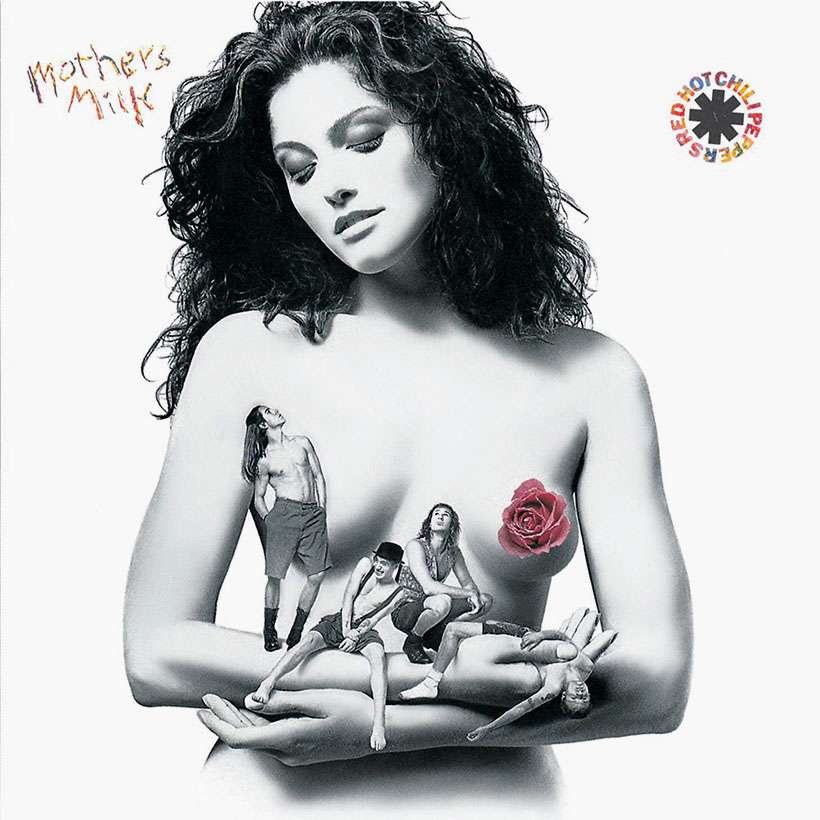It’s easy to forget, but in the late 80s, Red Hot Chili Peppers weren’t the same influential funk-rock band they are today. In 1989, the group was at a turning point that could have derailed their career. At this point, the Los Angeles natives were local favorites and a cult curiosity, particularly on the college circuit, with their wild blend of funk, rock, and their over-the-top live shows that would culminate in their notorious sock “costume”.
By the time they started sessions for what would become their Mother’s Milk album, the band had been through their share of tragedy. In 1988, founding guitarist and creative glue of the group, Hillel Slovak, died of a heroin overdose, dealing a huge blow to the band that also led to drummer Jack Irons leaving the group. After a series of line-up changes, and frontman Anthony Kiedis kicking his own addictions, Red Hot Chili Peppers reformed with teenage guitar phenom John Frusciante and Chad Smith on drums.
Changing of the guard
The new combination of musicians sharpened the group’s focus as they headed into the studio to record Mother’s Milk. Though the sessions occurred perhaps too quickly (Smith had joined the band just a couple of months prior), producer Michael Beinhorn and the band made the most of the situation, even if there was tension between the two. According to Kiedis, in his revealing and excellent autobiography, Scar Tissue, the producer and band battled over the sound.
“Beinhorn wanted John to have a big, crunching, almost metal-sounding guitar tone whereas before we always had some interesting acid-rock guitar tones as well as a lot of slinky, sexy, funky guitar tones,” Kiedis wrote. While the two often butted heads over stylistic choices, the clash of personalities ultimately brought out the best of Kiedis’ vocal abilities and Frusciante’s guitar playing.
Released on August 16, 1989, Mother’s Milk became Red Hot Chili Peppers’ much-deserved mainstream breakthrough. The band’s explosive sound was harnessed exquisitely by Beinhorn, but the result was years in the making: during their college-rock prime, RHCP had paid their dues and even worked with the king of funk, George Clinton, on their second album, Freaky Styley.
Knock Me Down (Remastered 2003)
Click to load video
Smashing through the proverbial door
Thanks to the success of Mother’s Milk, Red Hot Chili Peppers would eventually smash through the proverbial door. The band’s newfound energy and lyrical messaging can be heard on tracks like “Knock Me Down,” on which Kiedis sings about the pitfalls of the sex, drugs, and rock’n’roll lifestyle over crunchy riffs and heavy drums. This marked the first time the band notably tackled issues beyond sex and having a good time. With their new line-up, Mother’s Milk was the first glimpse into RHCP’s greater future.
Not to be outdone, Flea powered the funky “Nobody Weird Like Me,” a throwback to the band’s more eccentric and juvenile style that marked their early years. The thrashing album opener, “Good Time Boys,” felt more metal-infused than the rest of the album, but still proved that the group could deftly fuse various genres into one stomping hybrid. The same goes for their machine-gun-blast cover of Jimi Hendrix’s “Fire,” which became an ode to Hillel Slovak, when Kiedis changed the lyrics from “Move over, Rover,” and let Jimi take over” to “Move over, Rover, and let Mr. Huckleberry take over,” referencing the late guitarist’s nickname.
Finding higher ground
Just as the band could be counted on for punkish cuts like “Magic Johnson” (their tribute to the Lakers’ legendary point guard), they were also capable of more nuanced tracks like “Knock Me Down.” But it was their fiery cover of Stevie Wonder’s “Higher Ground” that launched them into a different stratosphere: RHCP took the laidback grooves of the 1973 original and put their frantic, maniacal spin on it.
Much like “Nobody Weird Like Me,” “Higher Ground” thrashed, but with a rapid-fire tempo. The song’s energy translated into an equally chaotic video that landed on MTV and boosted Red Hot Chili Peppers’ profile, setting them up for greater stardom.
Higher Ground (Remastered 2003)
Click to load video
While their commercial breakthrough wouldn’t arrive until the Rick Rubin-produced Blood Sugar Sex Magik, Mother’s Milk captured RHCP in their still-anarchic state, and its fusion of funk, hip-hop, and hard rock clearly paved the way for an entire decade’s worth of records that followed.
Following its release, Mother’s Milk went gold within a year, and later achieved platinum status. Despite their short time together as a band, the additions of Frusciante and Smith proved to be the final ingredients Red Hot Chili Peppers needed, charting them on a course for global domination.



